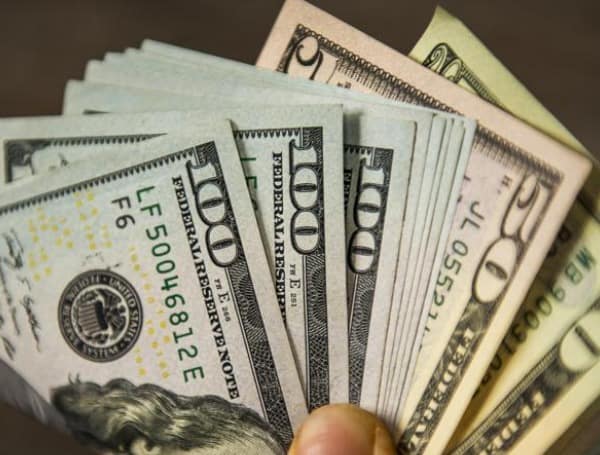The federal government has spent over $1 million to develop and test a web-accessible video game that aims to help LGBTQ youth stop “binge drinking,” a federal grant database shows.
The National Institutes of Health (NIH) has approved $1,075,660 in grant funding since 2016 to develop and test the effectiveness of a Japanese role-playing game-inspired web app in reducing binge drinking among sexual and gender minority youth, according to a federal grant database.
The grant claims LGBTQ youth are “at greater risk for alcohol-related morbidity and mortality across the life-course.”
Read: Biden DHS Asking Border Patrol To Record ‘Altercations’ With Texas Law Enforcement
The NIH pledged to pay $343,340 for the game’s development between April 2016 and May 2019 and $732,320 for studying its effectiveness in binge drinking mitigation between July 2023 and June 2028, according to federal spending records. The agency awarded both grants to the University of Pittsburgh.
The grant defines sexual and gender minority youth as people under 18 who identify as transgender, nonbinary, gay, bisexual or lesbian, among other identities.
The game involves turn-based battles, interacting with non-player characters, exploration and reading journal entries about the harmful effects of bullying, according to a 2019 research paper associated with one of the grants. Gay youths playing the game take on the role of a “superhuman individual” who faces discrimination at school “because of their uniqueness,” according to NIH-funded researchers.
During character creation, the game prompts players to choose six different pronouns.
Researchers claim that children will be encouraged to employ “productive coping strategies” and engage in “help-seeking behaviors” after playing the game.
Read: South Carolina Rep. Clyburn Says He Doesn’t ‘Believe’ That Biden Is Losing Black Voter Support
Another 2021 study associated with the grants tested the efficacy of the game in improving outcomes for sexual and gender minority youth across a broad range of areas and found few significant results. Researchers found little evidence that the game improved help-seeking behaviors, fomented productive coping skills or improved mental health.
The study did, however, find that playing the game was associated with “significantly reduced binge drinking frequency” and reduced “cyberbullying victimization.” Those relationships disappeared after a two-month follow-up period, however.
Authors of the study told readers to be cautious when interpreting their results, saying that their work was “a feasibility study” and that they “were not powered to find significant effects for secondary and tertiary outcomes.”
The research funded by the most recent NIH grant hypothesizes that playing the game will be associated with reduced binge drinking after three, six and 12 months.
Read: Wisconsin Republicans Introduce Abortion Bill As 2024 Election Draws Near
Other grants related to queer youth paid out by the Biden administration include over $200,000 from the NIH to fund a LGBTQ mentoring program in June 2023, nearly $700,000 from the Department of Health and Human Services (HHS) intended to prevent transgender boys from getting pregnant in September 2023 and an up to $1.7 million from HHS for LGTTQ youth counseling in July 2023, among other programs.
The NIH did not respond to the Daily Caller News Foundation’s request for comment.
Android Users, Click To Download The Free Press App And Never Miss A Story. Follow Us On Facebook and Twitter. Sign up for our free newsletter.

